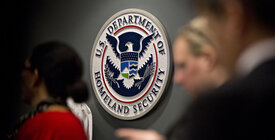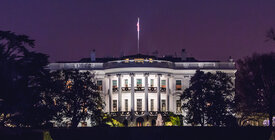Preventing another 9/11 has dominated U.S. national security policy for the past 20 years. During this time, the world has changed dramatically, and so have the threats and challenges that our country faces. Moreover, after two decades, we can see which of our national security strategies have worked, which haven’t, and which have actually caused harm — to innocent populations overseas and to our own pluralistic society. Yet our government has been slow to adapt to these changes and lessons.
This series of essays, by experts from a variety of backgrounds and perspectives, offers a 30,000-foot critique of where we went wrong after 9/11 and a vision for how we should be approaching national security today. They address a range of issues, from racial profiling to secret wars to mass surveillance to the future of the Department of Homeland Security. The authors include past and present members of Congress, former senior executive branch officials, legal scholars, and Brennan Center experts.
We can protect our national security while respecting democratic values and core constitutional freedoms. These essays offer a blueprint for doing just that.
Image: Stephen Simpson/©fitopardo/filo/Supawat Kaydeesud/EyeEm












